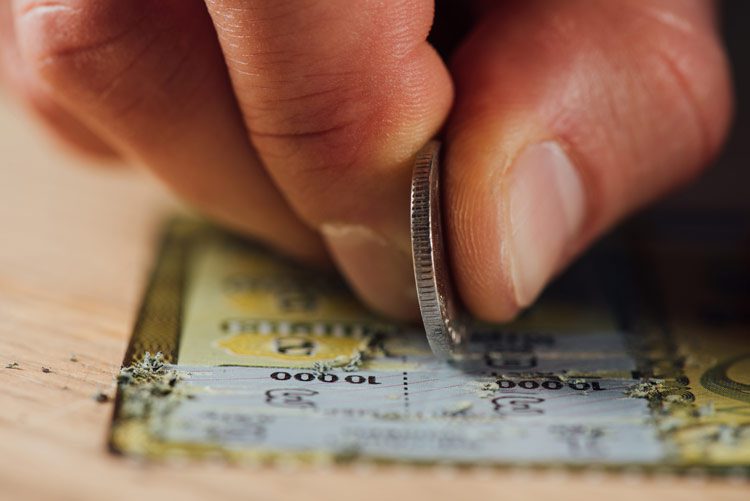Addiction can be a tricky thing. We are used to thinking of addiction in terms of substance use disorders—that is, addictions to drugs and/or alcohol. But substance use disorders are not the only kinds of addiction. Some people who have gone through treatment for an addiction to drugs or alcohol find themselves in the grips of what might be called a substitute addiction.
It is easy to see how it happens.
You’ve done the hard work of getting sober and you want to maintain that sobriety. But to do so, you have to make a significant change in your life. Odds are, your drug or alcohol use consumed a large portion of your time and attention before you entered treatment. Now, you find yourself with time on your hands—and you may well be worried that boredom or restlessness will get the better of you. You don’t want to relapse, so you have to find a way to fend off the feelings that might lead you down a bad path.
And so you find a way to fill the time and distract yourself from cravings and triggers. That’s a good thing, right? Well, maybe—if you can find some balance in your life. But a substitute addiction is still an addiction. Let’s take a look at what sorts of things can become substitute addictions.
Substitute Addiction Number One: Addicted to Work
Most people struggling with a substance use disorder probably could not be described as “workaholics.” It is much more likely that a problem with drugs or alcohol was causing problems at work, too.
But now that you are sober, you might be really digging in at work. That can be a good thing, especially if you need to rebuild trust with your boss and coworkers. Demonstrating a newfound passion for your job can go a long way toward getting your career back on track—and that can have plenty of benefits.
Still, it is important to watch for signs that your work has become a substitute addiction. Those signs might include the realization that you are always the first one to arrive at the office and the last to leave—especially if you feel guilty if someone gets in before you or leaves after you. Or maybe you find yourself waking up in the middle of the night to check work email. Maybe you can’t remember the last meal you ate somewhere other than your desk.
Our society tends to lionize workaholics, but working all of the time can have negative effects on your physical health, your mental health, and your relationships with friends and family—all the same sorts of problems your substance use disorder was causing.
Substitute Addiction Number Two: Addicted to Gambling
You might take up gambling to stave off some of the boredom you are feeling now that you are sober. You might bet on some sporting events just to add a little excitement to watching the game. You might enjoy spending an afternoon dropping coins into slot machines at the nearest casino (or dropping virtual coins into virtual slot machines on your phone). You might even start a low stakes weekly poker game with friends.
All of that seems innocent enough (assuming you can avoid the temptation to drink—an activity often associated with gambling). But it doesn’t take too much for low-stakes games to turn into high-takes losses. The thrill of the game or the strong desire to recoup your inevitable losses can both start you down the road to a gambling addiction. You may find yourself in serious financial straits—just as you may have when you were spending your money on drugs and alcohol.
Substitute Addiction Number Three: Addicted to Exercise
It seems like everybody is unhappy with their level of physical fitness. That isn’t always enough to get us to do anything about it, but maybe you have decided to use your extra time to get yourself into shape. You join a gym, get some home workout equipment, purchase a gadget to keep track of your activity. So far, so good, right? After all, regular exercise is an excellent way to support your sobriety while also improving your physical and mental health.
But in the case of exercise, you can get too much of a good thing. If you are spending hours and hours exercising each day and pushing yourself past the point of exhaustion, it is probably time to take a step back. The same is true if you find yourself feeling a great deal of anxiety if you miss a workout or get interrupted during a workout session. And if you are ignoring injury (or worse, turning to pain meds that might undermine your sobriety) so that you can keep exercising, you have almost certainly turned exercise into a substitute addiction.
This Is Not a Comprehensive List
We want to be clear here: work, gambling, and exercise are certainly not the only pursuits that can become problematic substitute addictions. If you find that you feel compelled to do something—even if you no longer enjoy it—and feel guilty or anxious when something stands in your way, you may well be confronting a substitute addiction. If you are, talk to your therapist, 12-Step sponsor or recovery mentor, and/or your primary care physician as soon as possible so that you can get the help you need to restore balance in your life.
Get the Help You Need Now
At Wooded Glen Recovery Center, we are committed to an evidence-based, compassionate, and personalized approach to addressing substance use disorders and co-occurring mental health disorders. We want to help you find your way to sobriety and give you the strategies and resources you need to live a balanced, sober life.

